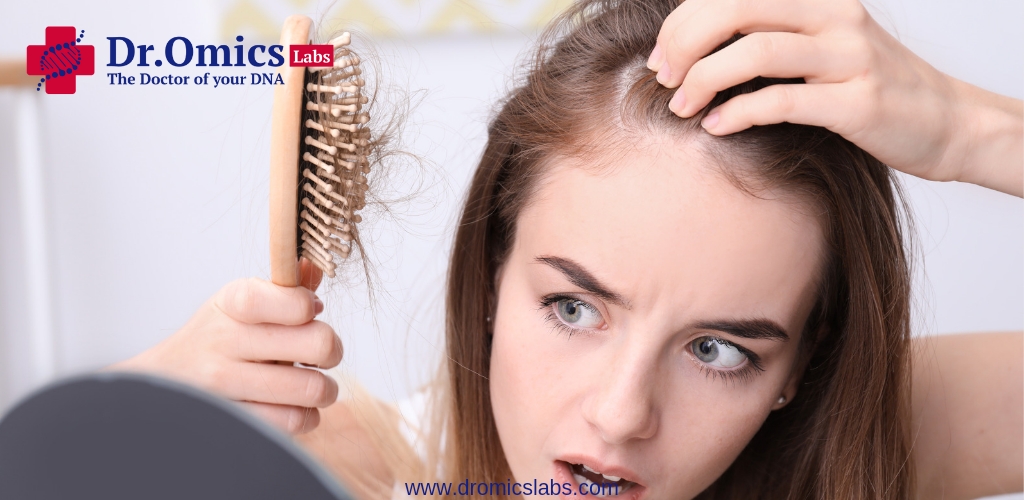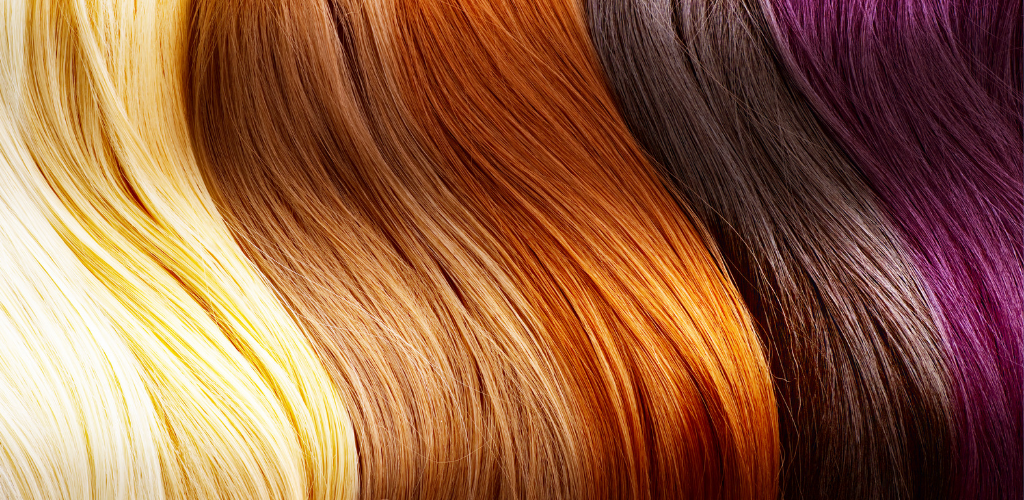Hair loss is a common concern affecting both men and women, with various factors contributing to this condition. While genetics play a significant role in determining hair loss patterns, environmental factors also play a crucial part in influencing the health of your hair. Let’s delve into the intricate relationship between genetics and environmental influences on hair loss.
Genetic Influence on Hair Loss
Genetic predisposition, particularly androgenetic alopecia, is a primary cause of hair loss in both men and women. This hereditary condition, commonly known as male or female pattern baldness, follows predictable patterns such as receding hairlines and thinning hair. Studies indicate that genetic factors can affect up to 80% of noticeably balding individuals, with a polygenic nature suggesting multiple genes contribute to this condition3.
Environmental Factors Contributing to Hair Loss
- Lifestyle Choices: Unhealthy habits like smoking, excessive alcohol consumption, and a sedentary lifestyle can exacerbate hair loss. Adopting a healthier lifestyle can positively impact overall well-being and promote hair growth.
- Diet: Poor nutrition can adversely affect hair health. A balanced diet rich in essential nutrients like vitamins, minerals, proteins, biotin, zinc, and iron is crucial for maintaining healthy hair growth.
- Stress Levels: High stress levels can disrupt the hair growth cycle, leading to increased hair loss. Effective stress management techniques are essential for maintaining healthy hair.
- Exposure to Harmful Substances: Pollutants, chemicals, and certain medications can contribute to hair loss. Protecting your hair from harmful substances and discussing potential side effects with healthcare providers are vital steps in mitigating environmental factors contributing to hair loss1.
The Interplay Between Genetics and Environment
While genetic predisposition sets the foundation for hair loss patterns, environmental factors can exacerbate or mitigate its effects. Understanding this complex interplay is crucial for developing effective strategies to manage and potentially reverse hair loss.
In conclusion, while genetics significantly influence the occurrence and progression of hair loss conditions like androgenetic alopecia, environmental factors play a pivotal role in modulating these genetic predispositions. By addressing both genetic and environmental aspects of hair loss, individuals can adopt holistic approaches to promote healthy hair growth and mitigate the impact of this common concern.
What are some common environmental factors that contribute to hair loss ?
Environmental factors can significantly contribute to hair loss, and understanding these factors is crucial for managing and potentially reversing hair loss. Some common environmental factors that contribute to hair loss include:
- Pollutants: Air and waterborne toxins can lead to sensitive scalp syndrome, characterized by an oily scalp, itching, pain in the hair roots, and dandruff.
- Stress: High stress levels can disrupt the hair growth cycle, leading to increased hair loss.
- Unhealthy lifestyle habits: Smoking can damage hair follicles by adversely affecting DNA, and excessive alcohol consumption can lead to dehydration, causing hair to thin due to dry follicles.
- Poor diet: A diet rich in sugar, junk food, and a lack of essential nutrients can negatively affect hair health.
- Harmful hairstyling methods: Overuse of heat styling appliances can cause hair breakage, and chemicals used in hair treatments can weaken hair.
- Exposure to harmful substances: Pollutants, chemicals, and certain medications can contribute to hair loss.
- Skin conditions: Allergies triggered by dust particles can lead to inflammation or scalp infections, affecting hair health.
- Sun exposure: Overexposure to the sun can cause brittle, dry, and lifeless hair, mainly characterised by split ends.
- Hormonal imbalances: Excessive hair styling or hair treatments with hot oil can swell up the hair follicles, affecting hair growth.
- Chemical therapies: Dyes, flat irons, blow dryers, and bad brushes can affect individual hair strands.
To mitigate the effects of environmental factors on hair loss, individuals can adopt healthier lifestyle habits, maintain a balanced diet rich in essential nutrients, and protect their hair from harmful substances. Regular exercise, stress management techniques, and avoiding excessive alcohol consumption can also help manage hair loss[1].
What are some effective treatments for hair loss caused by genetic factors
Some effective treatments for hair loss caused by genetic factors include:
- Hair Transplant Surgery:This procedure involves transplanting hair follicles from a donor area to bald or thinning areas of the scalp. It can be highly effective but may come with risks like infection and scarring.
- Scalp Micro-pigmentation:A non-surgical treatment where the scalp is tattooed to create the appearance of hair follicles. It can effectively conceal hair loss but may require periodic touch-ups.
What are some surgical options for treating hair loss caused by genetic factors ?
Some surgical options for treating hair loss caused by genetic factors include:
-
Hair Transplant Surgery:
Procedure: Hair transplant surgery involves taking hair follicles from a donor area, typically the back of the head, and transplanting them to bald or thinning areas of the scalp.
Effectiveness: This procedure can be highly effective in restoring hair growth in the treated areas.
Considerations: Hair transplant surgery is expensive and may be associated with complications such as infection and scarring.
-
Scalp Micro-pigmentation:
Procedure: This non-surgical treatment option involves tattooing the scalp to create the appearance of hair follicles.
Effectiveness: Scalp micro-pigmentation can effectively conceal hair loss, providing a cosmetic solution.
Maintenance: It is not a permanent solution and may need to be repeated every few years to maintain the desired look.
-
Low-Level Laser Therapy:
Procedure: The FDA has approved low-level laser devices for treating hereditary hair loss in both men and women.
Effectiveness: Studies have shown that laser therapy can help improve hair density in individuals experiencing genetic hair loss.
CONCLUSION :
In conclusion, the complex interplay between genetics and environmental factors significantly influences hair loss. While genetic predisposition, particularly androgenetic alopecia, sets the foundation for hair loss patterns, environmental factors such as lifestyle choices, diet, stress levels, and exposure to pollutants can exacerbate or mitigate its effects. By understanding and addressing both genetic and environmental aspects of hair loss, individuals can adopt holistic approaches to promote healthy hair growth and manage this common concern effectively.
Sources:
- Nashville Hair Doctor – Is Hair Loss Genetic, Environmental, or Both?
- PMC – An overview of the genetic aspects of hair loss and its connection with nutrition
- Sons – Answered: Is hair loss genetic or environmental?
Citations:
[1] https://need-hair.com/do-environmental-factors-result-in-hair-loss/
[2] https://www.belgraviacentre.com/blog/environment-and-lifestyle-causes-for-hair-loss
[4] https://nashvillehairdoctor.com/hair-loss/hair-loss-both-genetic-environmental/
[5] https://sons.co.uk/blogs/journal/answered-is-hair-loss-genetic-or-environmental




